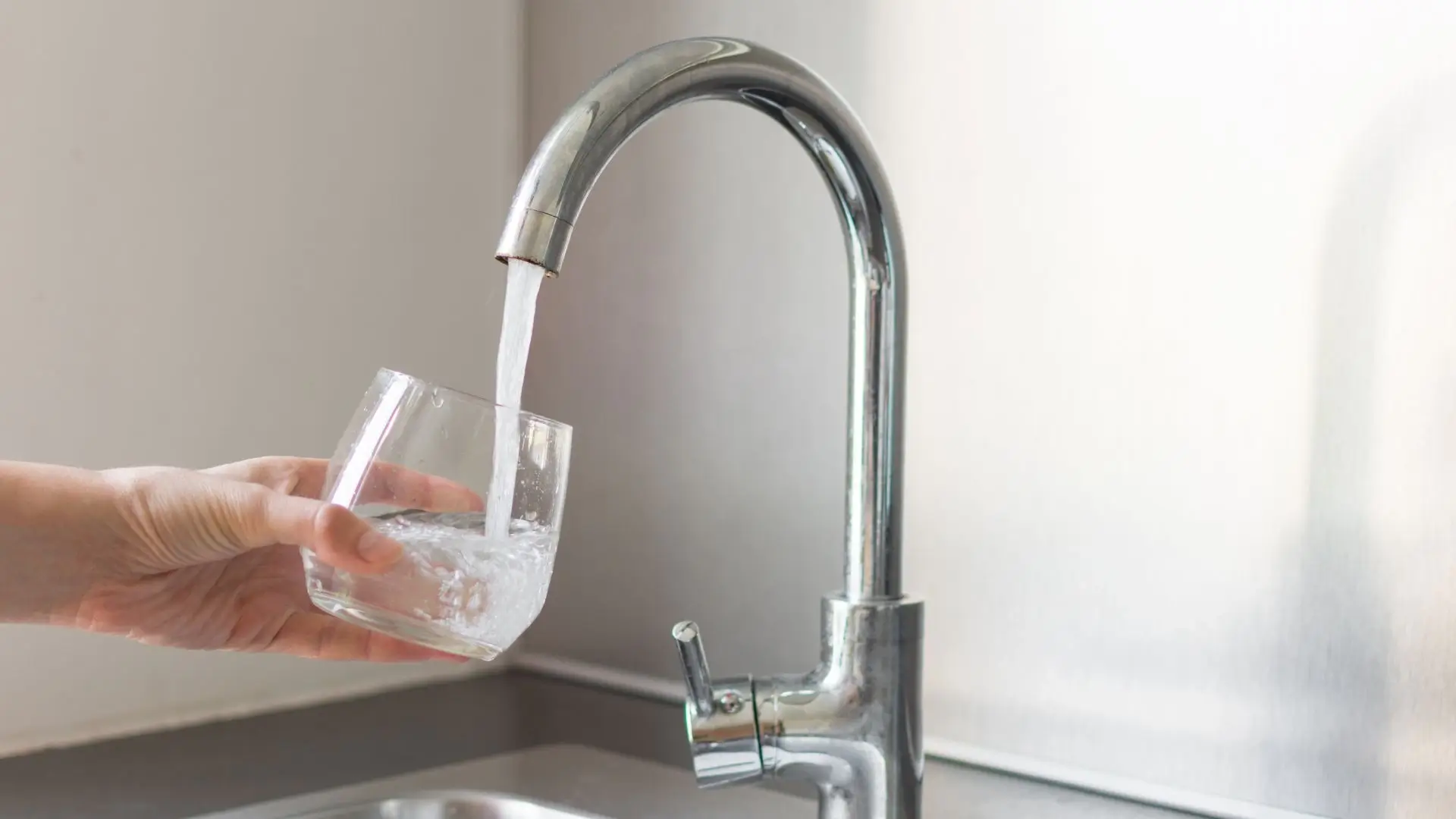If you detect unusual tastes, odors, or particles in your tap water, there may be potential water quality issues that require immediate attention. Uncommon flavors like rotten eggs or metallic tastes could be indicators of water quality problems. Presence of sediment or particles in the water might suggest contamination issues. It is crucial to address these signs promptly to prevent further problems. Elevated levels of iron, copper, chlorine, or sulfur could indicate hazards. Thorough testing can help identify contaminants for a safer water supply. Taking quick action is essential to ensure the cleanliness and safety of your tap water. Learn how to address tap water concerns.
Contact CAN Plumbing and Drainage for your Tap Water Needs
When dealing with tap water quality concerns, reaching out to CAN Plumbing and Drainage is the initial step to ensure the safety of your water supply. Tap water can get contaminated with different substances, leading to issues such as changes in water pressure, unpleasant odors, and a metallic taste. Water contamination is a serious problem that can impact the health of you and your family. CAN Plumbing and Drainage provides expert services to detect and address any contaminants present in your tap water. By depending on our professional team, you can be confident that your water quality will meet the necessary standards. Don’t overlook the signs of water quality issues; contact us today for a thorough inspection and solution to your tap water concerns.

CAN Plumbing and Drainage Services Related to Tap Water
We specialize in providing top-notch water filtration services to ensure that your tap water is clean and safe for consumption. Our team is committed to delivering expert solutions to tackle any issues concerning the quality of your tap water. Get in touch with us today for a complimentary water assessment and let us assist you in maintaining the highest standard of water quality in your home.
Water Filtration
Our plumbing and drainage services in Canada offer effective solutions for addressing tap water quality through water filtration systems. Water filtration is a crucial process for enhancing water quality by eliminating impurities and contaminants. A water filter operates by passing water through a medium that captures particles, sediment, chemicals, and microbes, ensuring cleaner and safer water for consumption. Water treatment via filtration can address specific issues such as chlorine taste, lead, sediment, or bacteria, thereby improving the overall quality of the water system. The installation of a water softener as part of the filtration system can also help reduce mineral buildup and enhance the taste of water. Rely on our expertise in water filtration to ensure that your tap water meets the highest standards of quality.

Tap Water
Ensuring high-quality tap water is a critical task that requires comprehensive assessment and targeted interventions from plumbing and drainage services in Canada. Warning signs of potential water contamination may include an odd taste or smell. For instance, a metallic taste could indicate the presence of dissolved metals, posing health risks. Any changes in the taste, color, or odor of your tap water should not be ignored as it could signal unsafe conditions for consumption. Plumbing and drainage services are equipped to conduct tests to identify any contaminants in the water supply. Taking prompt action is essential to address any issues with tap water quality and protect the well-being of your household.

Free Water
When it comes to tap water quality, Canadian plumbing and drainage services are crucial in ensuring a safe and reliable free water supply. Maintaining the cleanliness and safety of drinking water is of utmost importance, and any signs of contamination should be addressed promptly. Elevated levels of iron or copper in water testing could indicate potential hazards for consumption. Similarly, high levels of chlorine or sulfur in the water may signal issues that need attention. Plumbing professionals are equipped to conduct thorough assessments to pinpoint the source of these contaminants and take necessary steps to enhance water quality. Regular maintenance and testing are essential to prevent harmful substances and ensure a clean water supply for daily use.
Strange Taste
Unusual taste in drinking water may indicate important water quality issues that require further investigation. If your water has an odd taste like rotten eggs or a metallic flavor, it could be a sign of underlying problems. A strange taste in your water is often caused by high levels of minerals such as iron or sulfur, which can impact the water’s taste. The metallic taste could point to corrosion in your plumbing system, while the smell of rotten eggs may be due to hydrogen sulfide gas. These issues not only affect the taste of your water but could also pose health risks if left unaddressed. If you notice these unusual tastes, it’s crucial to have your water tested to identify and tackle any potential contaminants.
Sediment or Particles
When assessing water quality, the presence of sediment or particles can signal potential contamination issues that require immediate attention. Sediment in tap water may appear as cloudiness or visible particles, often resembling dirt and sediment. These deposits raise concerns as they could indicate problems within the plumbing system, such as corrosion or pipe build-up. If you observe sediment or particles in your water, it is crucial to promptly address the issue to prevent further contamination. These particles can impact the taste and quality of the water from your taps, underscoring the importance of having a professional plumber investigate the source of the sediment to ensure the water’s safety for consumption.
Health Symptoms
Certain health symptoms may indicate potential water quality issues that require investigation. Gastrointestinal distress, nausea, diarrhea, and stomach cramps can be signs of contamination in tap water. If your tap water has a rotten egg or sulfur smell, it could indicate the presence of hydrogen sulfide from contaminated water sources. The Environmental Protection Agency advises that these symptoms should not be ignored, as they could signal that the water is unsafe to drink. It is essential to pay attention to any unusual health symptoms that arise after consuming tap water and to seek medical advice if needed. Taking prompt action is crucial in ensuring the safety and quality of the water supply in your home.

Unusual Odor
Detecting an unfamiliar or unpleasant smell in your tap water can indicate water quality issues that need immediate attention. An unusual odor, such as the scent of rotten eggs, could suggest contamination in your water supply. This smell may be caused by metals like iron, manganese, or sulfur present in the water. Such odors signal that your tap water may not be safe to drink or use for daily activities. It’s crucial to address this problem promptly to avoid potential health risks. Contact your local water utility to investigate the issue and consider using alternative water sources like bottled or filtered water until the cause is identified and resolved.
Discoloration
If you notice a change in the color of your tap water, it could indicate potential water quality issues that need immediate attention. Discoloration in tap water is a sign that your water might be contaminated. Unusual colors like brown, yellow, green, or cloudy water could suggest the presence of sediments, rust, or algae in the water supply. When your tap water is not clear and colorless, it indicates that the water does not meet expected standards. This discoloration could be due to aging pipes, water main breaks, or the presence of harmful bacteria. Therefore, if your tap water shows any signs of discoloration, it is essential to have it tested promptly to ensure the safety of your water supply.
Frequently Asked Questions About Tap Water Near Me
Can Tap Water Quality Vary Depending on the Time of Day?
Tap water quality may fluctuate depending on the time of day due to factors such as varying demand, water treatment processes, and the condition of pipes. Monitoring these changes is essential, and using filters can help maintain consistency in the quality of tap water.
How Often Should I Have My Tap Water Tested for Contaminants?
We recommend testing tap water for contaminants annually. Regular testing ensures water safety. If concerns arise or there are noticeable changes, testing more frequently is wise. Monitoring water quality regularly helps maintain a healthy environment.
Are There Any DIY Methods for Improving the Taste of Tap Water?
Enhancing the taste of tap water is easy with DIY methods such as using a water filter, infusing water with fruits or herbs for added flavor, or chilling water to reduce the taste of chlorine. These simple tricks can help make tap water more enjoyable to drink.
Can the Temperature of Tap Water Affect Its Quality?
The quality of tap water can be affected by its temperature. Changes in temperature can impact the levels of dissolved gases and minerals, potentially altering the taste and odor of the water. Monitoring and maintaining optimal temperatures is crucial for ensuring better water quality.
Is It Safe to Drink Tap Water if It Has a Slight Odor but No Other Visible Issues?
Yes, it is generally safe to drink tap water that has a slight odor but no visible issues. The odor could be from harmless organic matter. If the smell persists or gets stronger, it may be a good idea to test the water for any contaminants.
Please rate our website
Let us improve this post!
Tell us how we can improve this post?